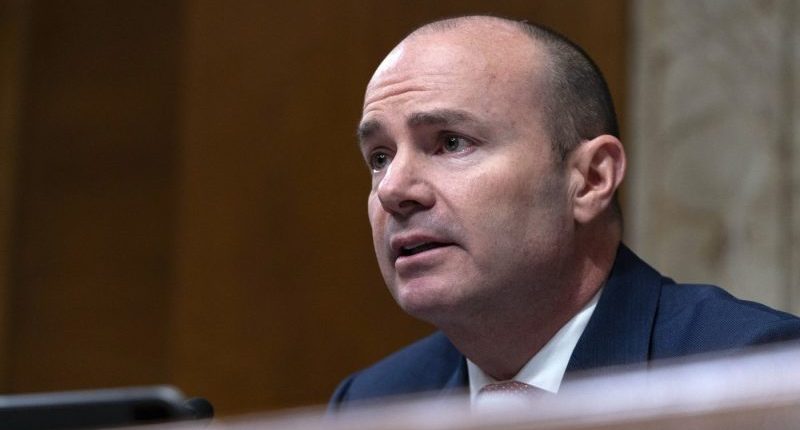Share this @internewscast.com

The Senate recently passed a major bill on Saturday, but not before eliminating a contentious clause that aimed to sell off vast amounts of public land.
Sen. Mike Lee (R-Utah), who was leading the push on the measure, announced late Saturday that the measure would be stripped from the bill.
“Due to the rigid limitations of the budget reconciliation process, I couldn’t implement clear, enforceable measures to ensure these lands would be purchased solely by American families, and not end up with China, Blackrock, or any foreign entities,” Lee stated on X.
“For that reason, I’ve decided to withdraw the federal land sales provision from the bill,” he added.
Originally, Lee had proposed the sale of 2.2 to 3.3 million acres of public land. When this was dismissed by the Senate parliamentarian, he suggested a revised plan to sell between 600,000 and 1.2 million acres instead.
But, the Utah Republican indicated in his post on Saturday that he would work with President Donald Trump to find uses for what he described as “underutilized” lands.
“President Trump promised to put underutilized federal land to work for American families, and I look forward to helping him achieve that in a way that respects the legacy of our public lands and reflects the values of people who use them most,” he wrote.
While the measure had some GOP support, it also received pushback from lawmakers on both sides of the aisle.
Opponents included a group of five House Republicans who said they would vote no if the final bill contained the measure.
Those who did oppose the public land sales cheered once its removal was announced.
“Today is a major victory for our public lands. Thank YOU for your incredible outpouring in defense of our American birthright. Because of you, the lands that we cherish will remain OURS,” said Sen. Martin Heinrich (D-N.M.) in a post of his own.
“And to those already plotting to go after our public lands another way: Don’t. Unless you like losing,” he added.
With a 51-49 vote, Senate Republicans were able to narrowly advance the sprawling, 1,000-page bill to enact Trump’s agenda late Saturday despite the opposition of two GOP lawmakers.
The Hill’s Alexander Bolton contributed to this report.
















